IBWAA
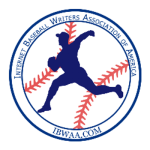
I think it is helpful to use the Cy Young guidelines when selecting each leagues top relievers. There are some other things I will consider.
I will consider both set-up men and closers. However, I will give slightly more weight to closers. We have seen time and time again there are players that have been terrific set-up men become shaky closers. Additionally, there should be weight to innings pitched. The more innings you play, the more important you are to a team.
Overall, my hope is to choose the best overall relievers whether or not they are closers.
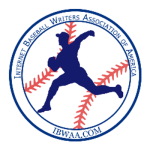
Overall, I think the criteria I would look at in voting for a Rookie of the Year is similar to the criteria to the MVP Award. To sum up, I will be looking at the following:
- The total amount of games played;
- The total value of the player (offense, defense, character); and
- Pitchers may be considered for the award.
However, to me that’s not enough. I believe the Rookie of the Year is a delicate balance between who played the best and who’s the best player. How much weight do you place on games played and how effective a player plays in those games?
I think test is Bob Hamelin over Manny Ramirez and the 1994 Rookie of the Year Award. Sure, by some measures Hamelin had a better year, but even then, we knew Manny was the better player. It looks wrong, but the result might’ve been right. Personally, I probably would’ve voted for Hamelin, but I would’ve changed my mind several times right up to the deadline.
I can tell you the AL ROY race is the main reason I’m still holding onto my ballot right now. I just hope I make the right decision.
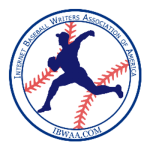
When I cast my vote for the Cy Young Award, I have one criteria and one criteria only; I will vote for the best pitcher. The hard part is how to determine who the best pitcher is.
I’m old enough to learn not to put too much weight into win-loss record, but I’ll be honest with you. There’s a traditionalist part of me that would have a hard time completely discounting it. I think k the main reason is I’ve seen enough Jon Niese starts to see a pitcher meltdown can lead to a loss even if his stat line looks good. However, I’ll put so little weight on this you shouldn’t worry.
My father raised me to look at ERA because back then it was more indicative of a pitcher’s talent. However, it is now 2015, and there are so many stats, and combination of stats, to look at that ERA now seems like it’s arcane. Personally, I like FIP as a substitute.
There’s other stats I like as well like BABIP, hard hit rate, and LOB%. However, I won’t focus on any one stat over another. I will however focus more on starters than relievers because starters have a much greater impact than relievers. It doesn’t mean I’ll never vote for a reliever. It just means that reliever better be doing something special.
Overall, my goal is to vote for the person I think had the best year. This is the person you would want starting Game One of the World Series.
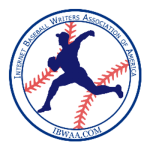
Unlike the MVP Award, there seems to be no guidelines for any of the other awards. Manager of the Year included. Typically, I have found this has been treated more as best record award more than a true analysis as to who performed the best.
The Manager of the Year is tricky because other than win-loss record, there really isn’t a statistic upon which you can rely. Sure, you can look at the difference between the record and the Pythagorean Record to see if a team has overachieved or underachieved. You can look at the utilization of shifts and defensive runs saved. I’m sure there’s a million other stats I’m not even mentioning right now.
There’s also the Dusty Baker issue. There are a number of problems people have with him as a manager. Mostly, people have problems with him as a tactician. However, what’s overlooked is how he got a lot out his teams like he did with the Giants. However, that same style didn’t work with the Cubs. Ultimately, what we learn here is that certain managers are better with different players and teams.
Overall, this is a subjective award. You’re really trying to judge who did the best job with the team he had. Personally, I think you can give this award to the same guy every year because baseball people tend to agree on who the best managers are. Unless, they have an uncharacteristic bad year or someone has a great year, you should vote for the best manager.
Overall, I think this one will be my most difficult vote in any particular year.
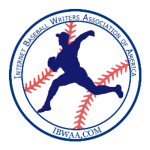
As a member of the IBWAA, I have an opportunity to vote for the NL & AL MVP Awards. With the email, there were no instructions. For guidance, I looked at the BBWAA rules, which in summation, are as follows:
- The player need not play for a playoff team;
- The amount of games played; and
- The total value of the player (offense, defense, and character).
These are good guidelines, but I’m not beholden to them. Here are some other things I intend to consider:
- Weight should be given to the player in a pennant race;
- A team not making the playoffs is not a penalty to a player if the team is in a pennant race;
- Pitchers can be considered for the award.
Now, I have not made up my mind yet on all 10 slots in the AL and NL right now, so I can’t show you how I will apply my criteria. What I can do is show you my thoughts on past races.
I agree with the results of the 1998 NL MVP Award. I put more weight to Sammy Sosa beating Mark McGwire even though McGwire had the better year. Sosa’s team was in a playoff race. I think there was enough there to give Sosa a boost over McGwire. Although now, truth be told with what we know about steroids, I think the award should have gone to Moises Alou.
I highly disagree with the results of the results of the 1999 AL MVP Award going to Ivan Rodriguez (steroids aside). Pedro Martinez was the best baseball player on the planet that year. His team was in a pennant race. Pudge was maybe the fifth best choice for AL MVP.
Now, as you may tell I like WAR. It’s not perfect, but it at least attempts to measure offense and defense. It attempts to equate a SS to a 1B. However, I’m aware of its limitations. Accordingly, I don’t see it as the end all, be all of stats. Similarly, I’m not focusing on HRs and RBIs. It’s a balancing.
I’m not done with the balancing yet. Once I am, I’ll submit my ballot. For this site, I’ll publish my entire ballot. I’ll do a short post on why I picked the players I picked to win the award. When and if I vote for Mets, I’ll do a longer post on that player.
In the meantime, if you have suggestions, please put them in the comments. I assure you I’ll read them and consider them. Thanks.
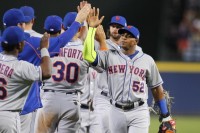
There has been a lot of discussion for Yoenis Cespedes as an NL MVP candidate. I understand the discussion even if I do not believe there is much merit to these discussions. The reason is Cespedes will have only played 36% of the season in the National League. Furthermore, with an NL MVP, you can only take his NL stats into consideration.
However, Cespedes is neck and neck with Josh Donaldson for the MLB MVP Award right now. The reason why Cespedes’ candidacy improves here is you can now look at the totality of his stats, which are impressive. He is hitting .296/.332/.558. This includes 35 homeruns and 103 RBIs (he’s Top 10 in both categories). His 6.9 WAR ranks fifth in MLB. He’s a viable candidate.
The only problem is the award doesn’t exist. While there were predecessors to the MVP award, the awards as we know them now started in 1931. At that time, there was a separate award given for the NL and the AL. This has continued until the present day despite the fact that Interleague Play started in 1997. With Bud Selig forcing the Astros into the AL, Interleague Play runs throughout the schedule, by necessity.
Right now, MLB is the only sport that doesn’t have one unified MVP. In the NFL, a team plays 25% of its schedule against the other conference. In the NBA, a team plays 34% of its games against the other conference. In the NHL, a team plays 34% of its games against the other league. In MLB, it’s only 12% of their games.
So yes, the other sports play a larger percentage of their games against the other league. However, that’s not the reason why there won’t be one unified MLB MVP. The reason mostly boils down to the fact that there are contract incentives tied to MVP vote results. There is no way the Player’s Association would ever permit fewer awards because that means less bonus money available to its players.
Honestly, I like the idea of baseball having two separate leagues with their own rules. I’m not a fan of the DH, but it does create a separation between the NL and AL. That separation is a key reason why I believe MLB can justify having two MVPs. Unfortunately, that means Cespedes won’t win an award he may very well could have earned.